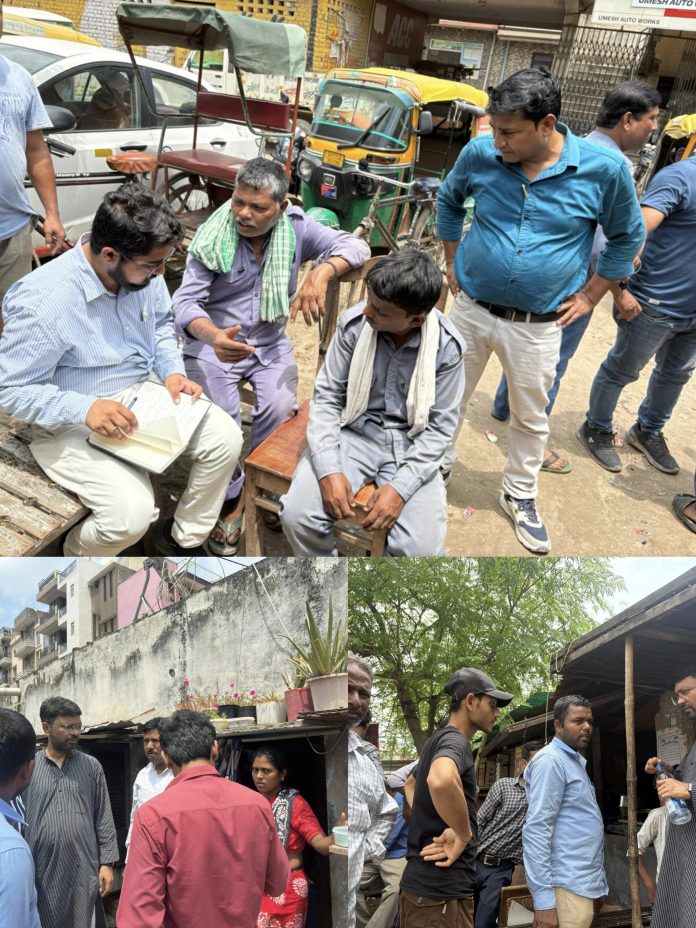– Mohd Naushad Khan
A humanitarian crisis is unfolding in Gurugram, Haryana. Hundreds of Bengali-origin Muslim migrant workers are fleeing the city. This follows reports of illegal detention, police brutality, and communal profiling.
Over the past week, media and fact-finding teams have confirmed at least 200 illegal detentions. Rights groups are calling this an “ethnic displacement in real-time.”
Temporary detention centers have been set up across Gurugram. These include halls in Badshahpur, Sector 10A, Sector 40, and Sector 1 in Manesar. People are being held without due process. Families have no information on charges, location, or legal steps.
These workers mostly come from West Bengal. They’ve worked in Gurugram for decades in construction, sanitation, domestic work, factory jobs, and transport. But now, they are being labelled as “illegal Bangladeshi immigrants.” Activists say these accusations are baseless and politically driven. They say it targets a vulnerable minority.
One worker from Shakkarpur village shared his experience. He and a dozen others were detained without warrants. They were held for three days in Sector 31’s community center, used as a detention site. They were moved between police stations. No arrest memos were given.
“They took our phones, switched them off, and didn’t let us call our families,” he said. “We’ve done nothing wrong. We just came here to work. Now we’re being hunted for our language and religion.”
Detainees say they were denied basic rights. Many faced verbal abuse and physical threats. “We asked for food. An officer mocked us: ‘Tum log roza nahi rakhte ho, tumhe kya khaane ki padi hai?’” The food was stale and not enough. Complaints led to beatings.
A fact-finding team of Nadeem Khan, Laiq Ahmed Khan, and lawyer M Huzaifa reported widespread abuse. Unmarked vehicles and plainclothes officers were involved. Detention centers were illegal. “It started as harassment. Now it’s a full communal and linguistic witch-hunt,” said Nadeem Khan.
Laiq Ahmed Khan added, “This is not policing. It’s clear communal profiling. Entire areas are emptying out as people flee to West Bengal in fear.”
M Huzaifa, now leading legal aid, said, “People with Aadhaar, voter ID, ration cards — all Indian documents — are being called outsiders. The city they built is now rejecting them.”
Their report shows growing fear in migrant-heavy areas. Homes are abandoned. Workers are fleeing to their villages. Arbitrary detentions have shaken entire communities.
“This is not random,” Huzaifa said. “It’s a planned attack on the dignity of a linguistic and religious minority. People are being made to feel stateless in their own land.”
In response, the Association for Protection of Civil Rights (APCR) has raised urgent demands. These include a judicial probe, release and tracing of all detainees, punishment for responsible police, compensation and rehabilitation for families, and disclosure of Home Ministry guidelines.
So far, state officials have not responded. Civil groups warn that if action isn’t taken, Gurugram may become a site of state-backed ethnic persecution.
As those who built Gurugram’s economy now flee for safety, one question remains: In the name of security, how many citizens must prove they belong?




